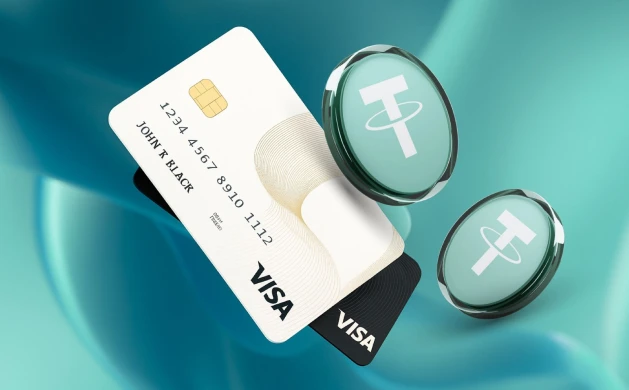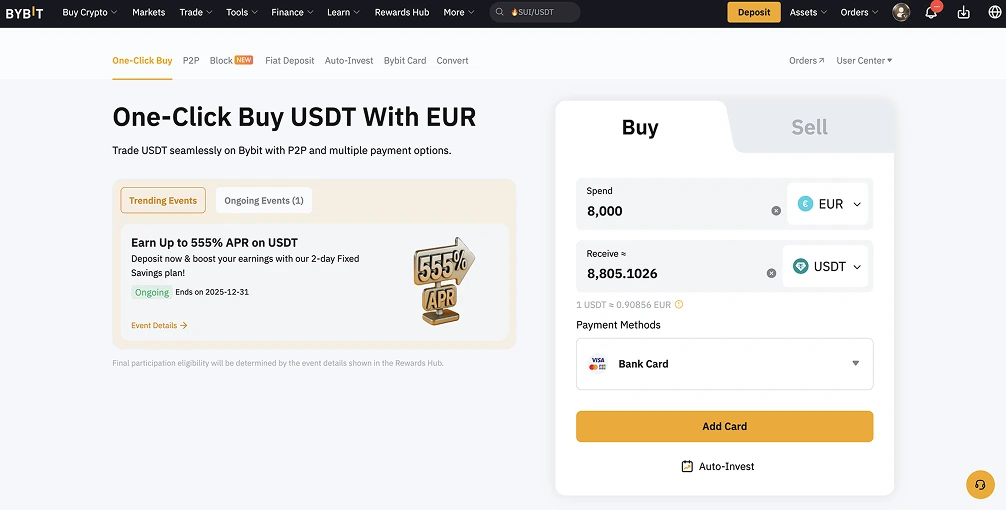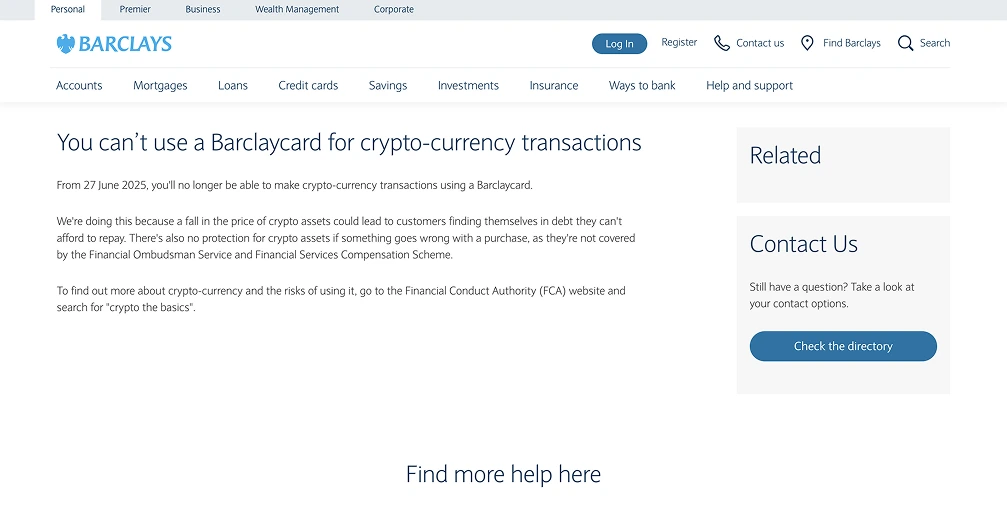How to Buy USDT with Credit Card

Summary: Investors can buy, trade, and hold Tether (USDT) with major credit cards such as Visa, Mastercard, and JCB on regulated exchanges licensed under frameworks like MiCA in the EU or FinCEN in the US.
Leading platforms supporting credit card USDT purchases include Bybit, Binance and Kraken, offering instant settlement, competitive fees, and global regulatory compliance.
Bybit is the best place to buy Tether (USDT) with a credit card thanks to its instant processing, low fees, support in 150+ countries, and trust from over 50 million users.
Available Assets
2,000+ Cryptocurrencies (including USDT)
Supported Credit Cards
Mastercard, VISA, JCB and More
Fees
Variable Depending on Credit Card
Can I Buy USDT with a Credit Card?
Yes, you can buy USDT (Tether) using major credit cards like Visa, Mastercard, JCB or American Express on regulated crypto exchanges. After verifying your identity and linking your card, the purchase is processed instantly, and your USDT appears in your wallet.
Credit card fees range from 2% to 5%, depending on your bank and region. Some issuers classify crypto buys as cash advances, which can trigger higher interest or payment blocks.
Check your card provider’s crypto policy and ensure the exchange complies with local regulations to avoid declined transactions or unexpected charges.
How to Buy Tether (USDT) with a Credit Card
The best way to buy Tether (USDT) with any major credit card is through Bybit, a globally regulated exchange trusted by over 50 million investors across 150 countries. Bybit supports Visa, Mastercard and JCB payments, allowing instant USDT purchases credited directly to your wallet.
Card payments are handled through verified providers and typically settle within minutes. Fees vary by issuer, but credit cards remain the fastest and most convenient option for buying USDT for trading or transfers.
Step-by-step guide to buying USDT on Bybit with a credit card:
- Create an Account: Register on Bybit and complete identity verification.
- Select Buy Option: Open One-Click Buy and choose USDT.
- Add Payment Method: Enter your credit card details and purchase amount.
- Confirm and Receive: Approve the payment to have USDT instantly credited to your Bybit wallet.

Credit Card Fees for Buying USDT
When buying Tether (USDT) with a credit card, investors should understand the key costs involved before completing a transaction.
- Purchase Fees: Credit card payments on exchanges like Bybit typically include a processing fee between 2% and 5%, depending on your card issuer and region. These fees are charged by payment providers and may appear as separate line items on your statement.
- Withdrawal Fees: Sending USDT to an external wallet incurs blockchain network fees that vary by chain (TRC20, ERC20, or others). Selling USDT for fiat through P2P trades is usually free or has minimal cost.
- Trading Fees: Bybit applies around 0.1% for spot trades under its maker-taker model. Maker orders cost about 0.1%, while taker orders can reach 0.2%.
Tip: Check your card provider’s crypto transaction policy and Bybit’s current fee schedule before buying to avoid unexpected charges and ensure smooth payment approval.
Credit Card Policies for Cryptocurrency
Credit card issuers worldwide take different positions on cryptocurrency purchases. Some allow payments to regulated exchanges, while others block them due to fraud, AML, or consumer debt concerns. Below are examples from major regions and banks.
- UK Banks’ Credit Card Policy: Most UK banks, including Barclays, and NatWest, block crypto purchases on credit cards under FCA guidance. Debit cards may still work on FCA-registered exchanges, but payments are often capped or delayed for review.
- US Banks’ Credit Card Policy: Major issuers like Chase and Bank of America classify crypto transactions as cash advances, adding higher fees and no grace period. Some banks fully block them to reduce chargeback and fraud risk.
- EU Banks’ Credit Card Policy: European banks such as Santander and ING allow limited crypto card spending under MiCA regulations, but only through licensed exchanges.
- Australian Banks’ Credit Card Policy: Most Australian banks restrict credit card payments to crypto exchanges. CommBank caps outgoing crypto transactions at AUD 10,000 per month and may hold or decline payments, while NAB blocks transfers to certain exchanges.
- Asian Banks’ Credit Card Policy: In Singapore and Hong Kong, banks like DBS and Standard Chartered permit card funding to exchanges licensed by the MAS or SFC. All transactions are screened under strict AML and fraud controls.
Globally, banks treat crypto as a high-risk category. Credit card purchases are often restricted or classified as cash advances, while debit card and bank transfer options remain the most reliable for funding regulated exchanges.

Credit Card Limits for USDT
Most exchanges impose daily limits on credit card purchases of USDT, typically ranging from $10,000 to $50,000 USD, depending on your verification level and region. These caps help manage fraud risk and comply with anti-money laundering (AML) regulations.
To raise your limit, complete full KYC verification, which may include uploading identification, proof of address, and income details. Higher tiers often unlock larger transaction allowances and faster settlement for verified users.
Best Exchanges for Buying USDT with a Credit Card
Multiple regulated exchanges support credit card purchases of USDT, each with different fees, limits, and verification requirements. While some focus on speed, others offer lower costs or broader regional coverage.
The table below compares leading exchanges by fees, processing time, verification tiers, and liquidity to help you identify the most secure and efficient option for your credit card purchases.
Final Thoughts
Buying USDT with a credit card is fast and accessible, but it’s essential to use regulated exchanges and understand your bank’s crypto policy before purchasing.
Always review card fees, daily limits, and verification tiers to avoid unexpected costs or declined payments. For larger or frequent transactions, completing full KYC and funding through compliant platforms like Bybit or Binance ensures smoother processing and better security.

Written by
Antony Bianco
Head of Research
Antony Bianco, co-founder of Datawallet, is a DeFi expert and active member of the Ethereum community who assist in zero-knowledge proof research for layer 2's. With a Master’s in Computer Science, he has made significant contributions to the crypto ecosystem, working with various DAOs on-chain.

.webp)


.webp)




